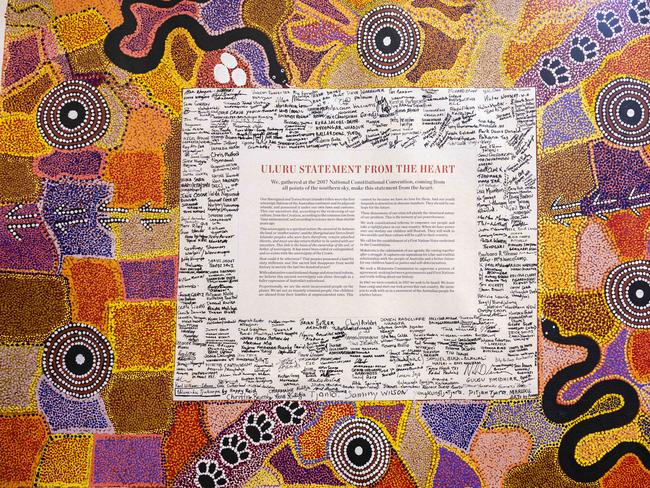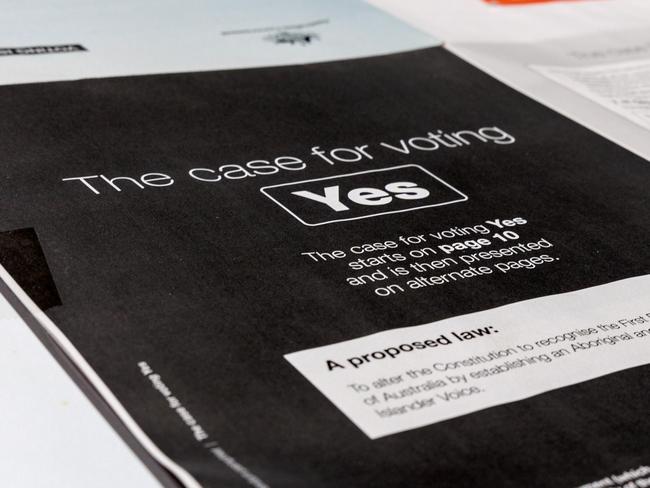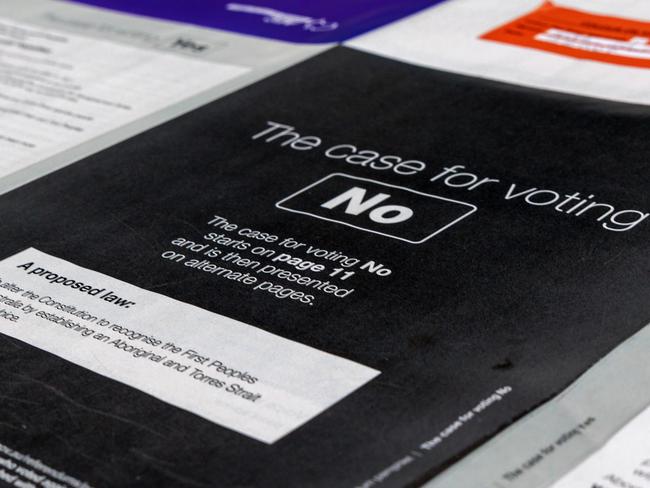Treaty? Reparations? Who will be on it? Your Voice to Parliament referendum questions answered
As the formal campaign for a referendum to change the constitution by creating an Aboriginal and Torres Strait Islander Voice to Parliament begins, we answer your big questions.
National
Don't miss out on the headlines from National. Followed categories will be added to My News.
Prime Minister Anthony Albanese today kicks off the formal campaign for a referendum to change the constitution by creating an Aboriginal and Torres Strait Islander “Voice to Parliament.”
With the referendum flagging in the polls, the next several weeks will be crucial to whether it succeeds or goes down.
But what really are Australians being asked to decide?
Read our Voice to Parliament explainer to find out the facts … and who’s said what.
WHAT IS THE VOICE TO PARLIAMENT?
As with everything, it depends who you ask.
According to its backers, the Voice to Parliament “would be an independent and permanent advisory body (that) would give advice to the Australian Parliament and Government on matters that affect the lives of Aboriginal and Torres Strait Islander peoples.”
IT SOUNDS STRAIGHTFORWARD, WHAT’S THE PROBLEM?
Opponents say that once you enshrine the advisory body into the constitution, it will be impossible to get rid of if there are problems like there were with previous advisory bodies such as the Aboriginal and Torres Strait Islander Commission (ATSIC).
They also say that because the Voice would be able to give advice, there would also be the presumption that it has to be asked for its input by parliament and the government – and that if parliament or government does not take its advice, it could wind up in the High Court.
Also, because the Voice is one part of the Uluru Statement from the Heart, critics worry that it will be the first step on a larger agenda of treaty making and “makaratta” which could involve changes to sovereignty and reparations for Aboriginal Australians.
There are also concerns that the Voice could use its position to mount challenges to things like Australia Day.
WHAT WOULD CHANGE IN THE CONSTITUTION?
Australians will be asked to answer YES or NO to the following question:
“A Proposed Law: to alter the Constitution to recognise the First Peoples of Australia by establishing an Aboriginal and Torres Strait Islander Voice.
“Do you approve this proposed alteration?”
The alteration would add these four lines to the Constitution:
In recognition of Aboriginal and Torres Strait Islander peoples as the First Peoples of Australia:
There shall be a body, to be called the Aboriginal and Torres Strait Islander Voice;
The Aboriginal and Torres Strait Islander Voice may make representations to the Parliament and the Executive Government of the Commonwealth on matters relating to Aboriginal and Torres Strait Islander peoples;
The Parliament shall, subject to this Constitution, have power to make laws with respect to matters relating to the Aboriginal and Torres Strait Islander Voice, including its composition, functions, powers and procedures.

HOW LONG IS THE ULURU STATEMENT?
It depends who you ask.
Prime Minister Anthony Albanese has been adamant that the Voice is a one-page document, 439 words in length.
However, longer versions have been revealed in FOI requests, as well as a longer version appearing in the final report of the Referendum Council in 2017.
Voice supporters like Professor Megan Davis have in the past stated that “it’s actually a very lengthy document of about 18 to 20 pages,” – although she and others have later walked back those claims.
Does it matter? What’s in the longer version?
The longer version of the Uluru Statement reflects the conversations that led up to the document, summing up the views of the various Aboriginal groups and activists who were consulted.
Some have called the longer document divisive, saying it contains views describing European settlement as an invasion and calling for the maintenance of Aboriginal sovereignty.
It also suggests seeking “financial settlement … such as seeking a percentage of GDP”.
IF IT’S A YES, WHO WILL BE ON THE VOICE?
We don’t know. The PM has repeatedly said that details would be worked out later by parliament after a successful referendum.
WILL THE VOICE LEAD TO A TREATY?
Voice supporters including the prime minister say the referendum is just about providing recognition to Aboriginal and Torres Strait Islanders. However, the government is committed to implementing the Uluru Statement in full. On multiple occasions the prime minister has said that the Voice was just the “first step.”

HOW IS THE YES MOVEMENT CAMPAIGNING?
Up until now, the Yes campaign has been focusing on using major celebrities and corporate giants to push their message.
However, with its poll numbers languishing, it has embarked on a doorknocking campaign in the suburbs. According to a 31-page document seen by The Australian, campaigners have been told to focus on finding “villains” like mining companies to try to convince people to vote yes to the Voice.

WHAT ABOUT THE NO CAMPAIGN?
They are lower key, but relying particularly on a targeted digital campaign.
WHAT DO THE POLLS SAY?
Most polls have shown the Voice declining in popularity since the referendum was announced. WA and Queensland are both considered firmly in the “no” camp with Victoria and NSW tightly run races.
The big campaigns are likely to be seen in South Australia and Tasmania, but the referendum needs to succeed in four out of six states nationally as well as with an overall majority vote to win.





